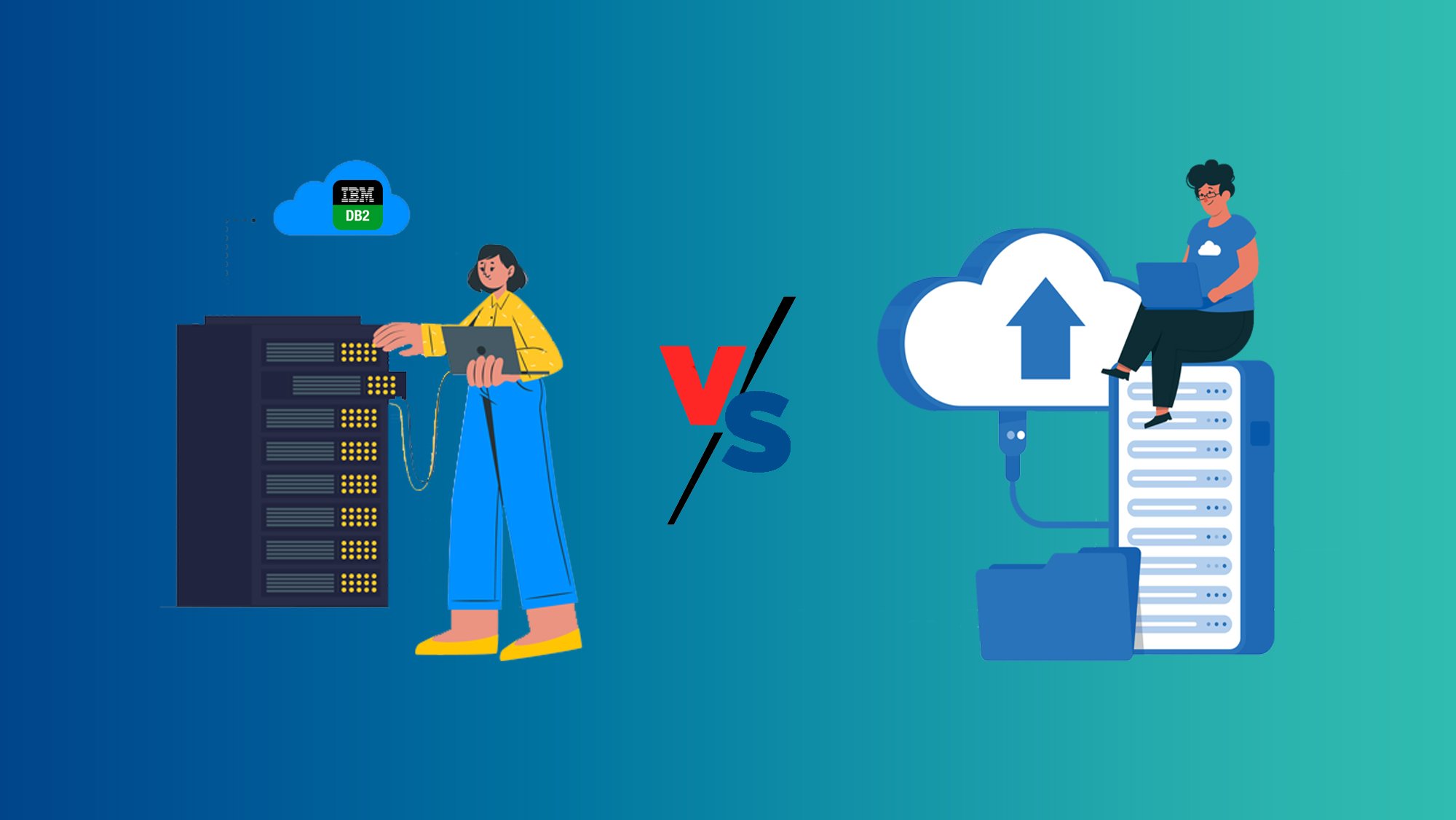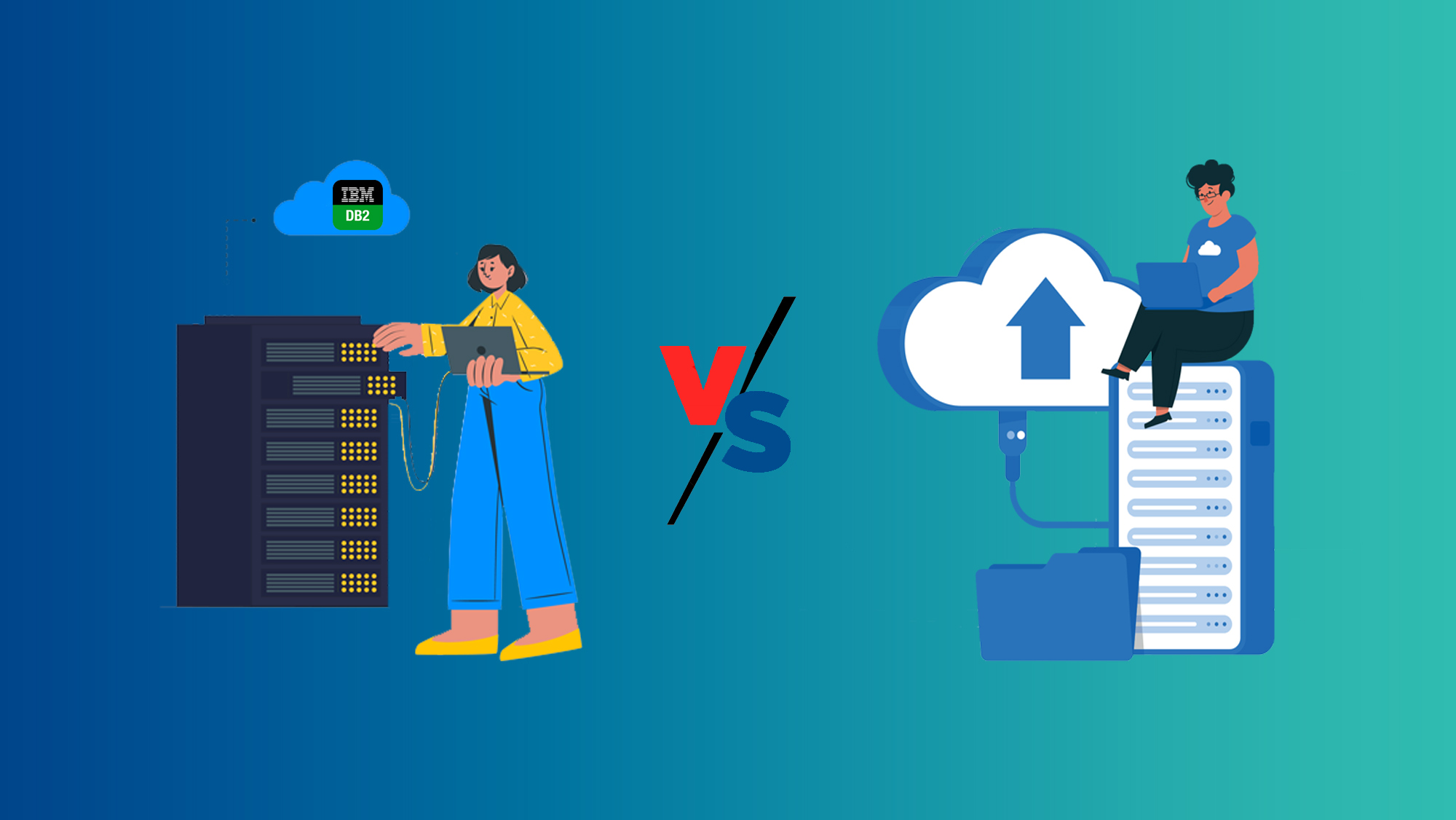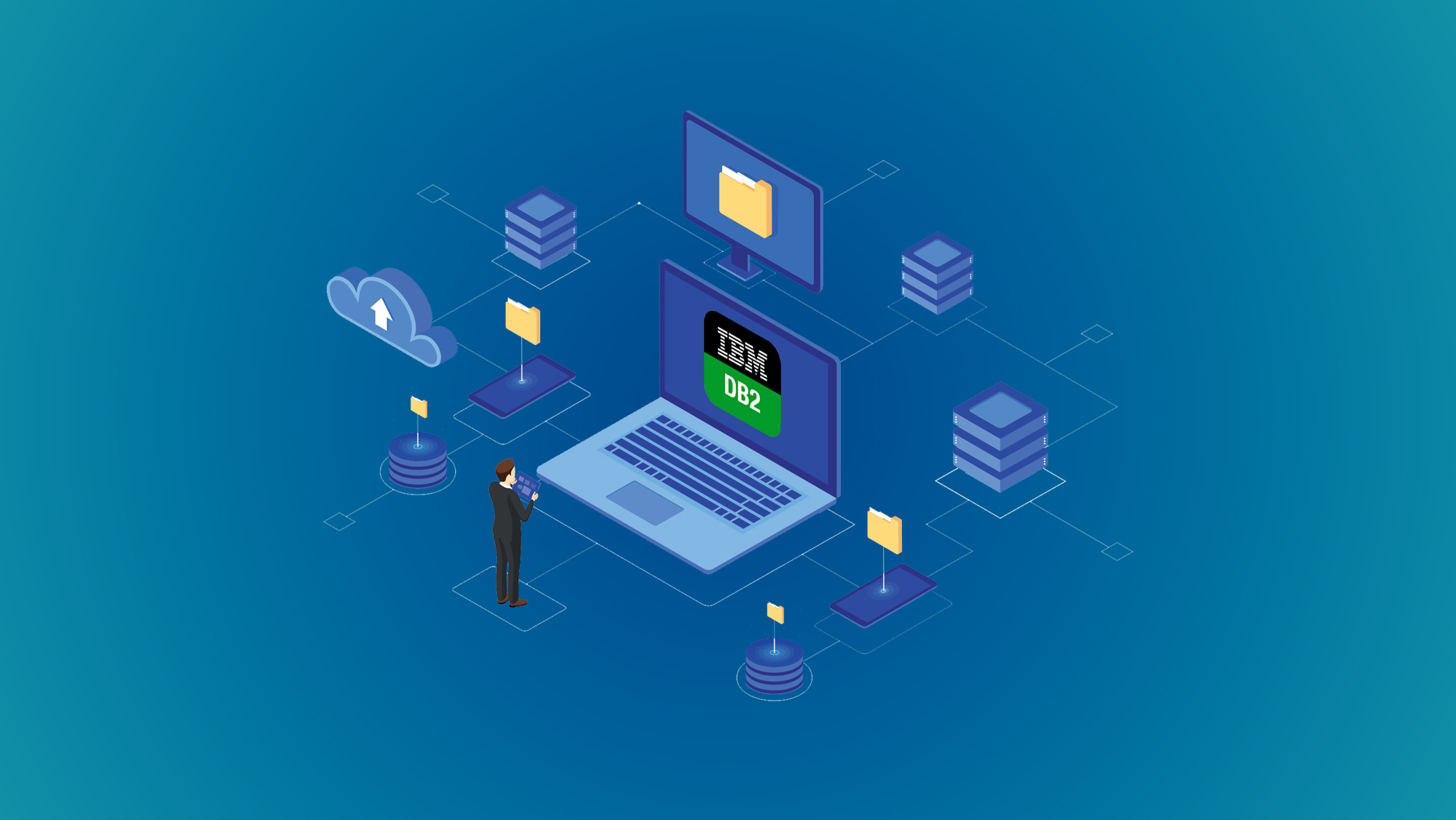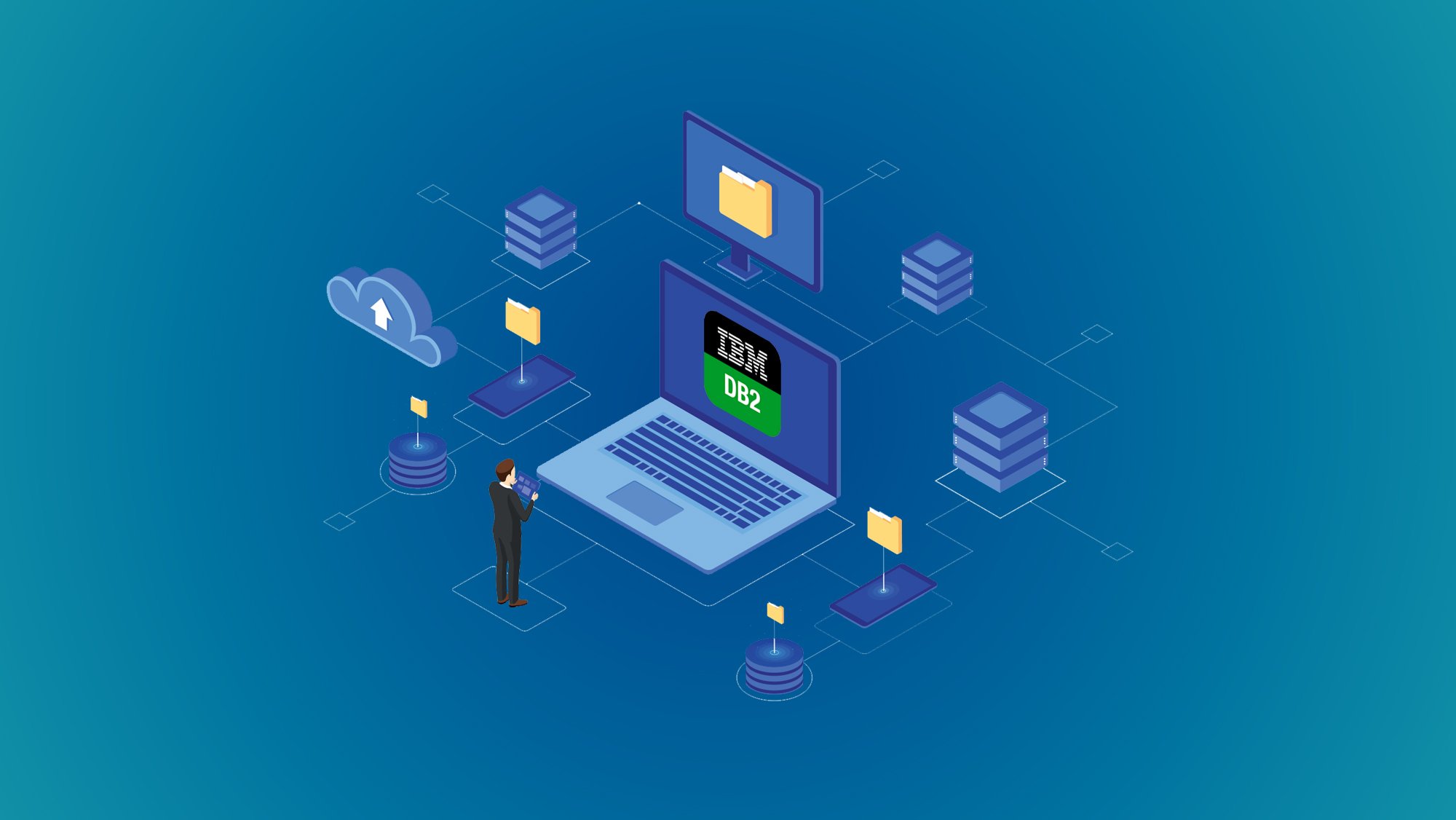Everything You Need to Know About IBM DB2 Training
Introduction:
IBM DB2 is a robust and widely-used relational database management system (RDBMS) developed by IBM. It provides efficient storage and retrieval of structured data, offering scalability and high performance. DB2 supports multiple platforms and is known for its reliability, security, and advanced features such as data compression and encryption. With its long-standing presence in the market, DB2 has established itself as a trusted solution for organizations seeking a powerful database management system to handle their data-intensive operations.
What is IBM DB2?
Who can do IBM DB2 Training?
IBM DB2 Career Opportunities
Why is IBM DB2 Training Important?
Prerequisite for IBM DB2 Courses
What is IBM DB2?
IBM DB2 is a powerful relational database management system (RDBMS) developed by IBM. It is designed to efficiently store, manage, and retrieve structured data. DB2 offers advanced features such as scalability, high performance, reliability, and security. It supports multiple platforms and provides robust solutions for data compression, encryption, and backup and recovery. DB2 has a long-standing presence in the market and is widely used by organizations of all sizes to handle their data-intensive operations.
Who can do IBM DB2 Training?
IBM DB2 training can be pursued by individuals who want to gain expertise in this powerful database management system. Professionals working in the field of database administration, data management, or those involved in the development and maintenance of applications using DB2 can benefit from such training. Additionally, software engineers, database developers, and IT professionals looking to enhance their skills in IBM DB2 can also enroll in training programs. Training providers, both online and offline, offer specialized courses on IBM DB2, covering topics such as installation, configuration, administration, performance optimization, SQL queries, and more. It is essential to choose a reputable training provider with experienced instructors to ensure high-quality education.
IBM DB2 Career Opportunities
- Database Administrator: Manage and optimize DB2 databases, ensure data integrity, performance tuning, and handle backup and recovery processes.
- Data Architect: Design and develop efficient database structures and data models, ensuring scalability and data integrity.
- Database Developer: Develop applications using DB2, write efficient SQL queries, and optimize database performance.
- Data Analyst: Analyze and interpret data stored in DB2 databases, generate reports, and provide insights to support business decision-making.
- Data Warehouse Specialist: Build and maintain data warehouses using DB2, design ETL (Extract, Transform, Load) processes, and ensure data quality and integration.
-

Read More: DB2 vs Other Databases: Exploring Strengths and Advantages
- Database Consultant: Provide consulting services to clients, offering expertise in DB2 implementation, optimization, and troubleshooting.
- Database Security Specialist: Ensure data security and compliance by implementing access controls, encryption, and auditing mechanisms in DB2 databases.
Cloud Database Engineer: Work with DB2 in cloud environments, manage database deployments, and optimize performance for cloud-based applications.
Why is IBM DB2 Training Important?
- Skill Development: Training equips individuals with the knowledge and skills required to effectively work with IBM DB2. It covers various aspects such as installation, configuration, administration, optimization, and troubleshooting. This enables professionals to become proficient in using DB2 and ensures they can perform their job responsibilities efficiently.
- Career Advancement: Having expertise in IBM DB2 opens up a wide range of career opportunities in the field of database management. Employers value professionals who are trained in DB2 as it demonstrates their commitment to learning and staying updated with industry-standard database technologies. Training can enhance job prospects and pave the way for career growth and higher positions in organizations.
- Improved Productivity: Knowledge gained through training helps individuals work more efficiently with DB2. They can leverage advanced features and techniques to optimize database performance, streamline administrative tasks, and troubleshoot issues effectively. This leads to improved productivity and faster resolution of database-related challenges.
- Data Integrity and Security: DB2 training covers essential topics like data integrity, backup and recovery, and security measures. Professionals learn best practices to ensure data consistency, protect against data loss, and implement security controls to safeguard sensitive information. This helps maintain the integrity and security of the organization's data assets.
- Adaptability to Changing Technologies: Training keeps professionals up to date with the latest advancements in IBM DB2. As technology evolves, new features and capabilities are introduced in DB2. By undergoing training, individuals can stay abreast of these changes, learn about new functionalities, and adapt to emerging trends, enabling them to make the most of the DB2 platform.
- Efficient Problem Solving: DB2 training equips individuals with the knowledge to identify and troubleshoot database-related issues effectively. They learn diagnostic techniques, performance tuning methods, and problem-solving strategies specific to DB2. This enables them to resolve issues promptly, minimizing downtime and ensuring smooth operations of critical databases.
Prerequisite for IBM DB2 Courses
- Basic Database Knowledge: Familiarity with fundamental database concepts, including tables, relationships, SQL queries, and database design principles, is often required. Prior experience or coursework in database management systems can be beneficial.
- Programming Skills: Proficiency in at least one programming language, such as Java, C++, or Python, is often expected. Basic programming knowledge enables participants to understand and work with DB2 application development and integration aspects effectively.
- Operating System Knowledge: Understanding the fundamentals of the operating systems commonly used with IBM DB2, such as Windows, Linux, or Unix, is important. This knowledge helps participants navigate the database installation, configuration, and administration processes.
- SQL Proficiency: A solid understanding of SQL (Structured Query Language) is typically a prerequisite for IBM DB2 courses. Participants should be comfortable writing SQL queries to retrieve, manipulate, and manage data in relational databases.
- Database Administration Concepts: Some advanced IBM DB2 courses may require participants to have a basic understanding of database administration concepts, such as backup and recovery, performance tuning, and security. This knowledge allows participants to grasp more complex topics covered in the training.
Conclusion:
IBM DB2 is a highly valuable and versatile database management system that offers numerous career opportunities. Training in DB2 equips individuals with the essential skills and knowledge to effectively work with the platform, ensuring productivity, data integrity, and adaptability to changing technologies. By gaining expertise in DB2, professionals can enhance their employability, contribute to organizations' success, and stay competitive in the evolving field of database management. DB2 training is a valuable investment for those looking to excel in the world of database administration and data management.
You May Also Like
These Related Stories

DB2 vs Other Databases: Exploring Strengths and Advantages

Optimizing Performance: Strategies for Maximizing IBM DB2 Efficiency




No Comments Yet
Let us know what you think